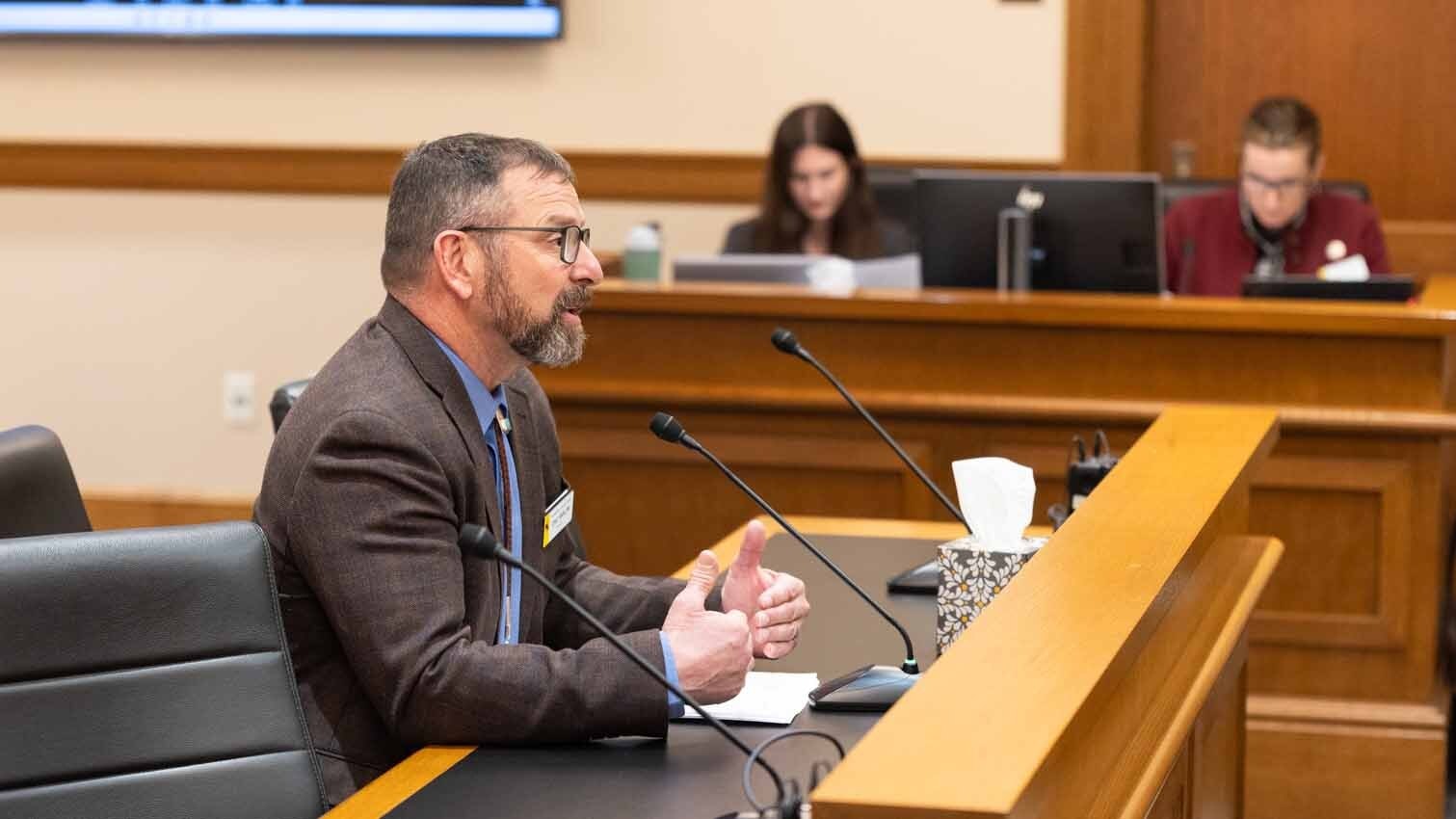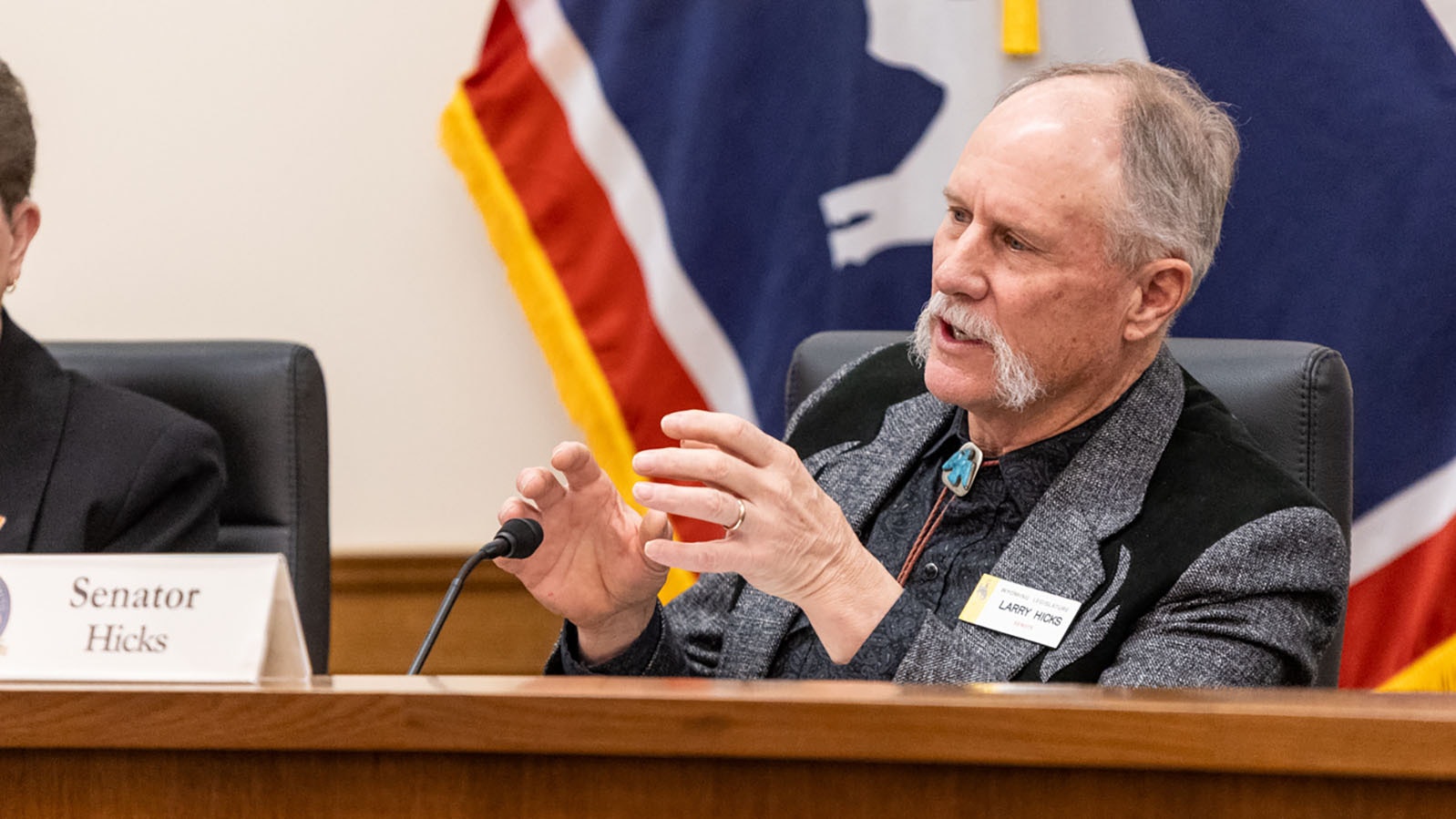The foremost piece of property tax relief legislation being considered during the 2025 legislative session was significantly altered from a flat 50% cut on Thursday in the state House.
As passed on second reading Thursday, Senate File 69 now makes a 50% cut based on the growth of assessed value on a home from 2019-2024, on home values up to $2 million. For example, if the property taxes on a home in 2019 grew from $3,000 to $4,000 by 2024, the homeowner would get $500 forever chopped off their bill, but nothing more.
SF 69 would also make property taxes much more predictable in Wyoming when considering that a 4% cap was put on year-to-year tax increases during the 2024 session.
The major change brought in an amendment by state Rep. Ken Clouston, R-Gillette, passed by a large majority in the House, which means that more than a few Wyoming Freedom Caucus members voted for it, since they hold a majority in the chamber. The Freedom Caucus had also supported the original version of the bill.
Rep. Tom Kelly, R-Sheridan, described the amendment as an “elegant solution” as a way to provide relief to taxpayers while also avoiding totally gutting local governments and schools. One of the main points of opposition to the original SF 69 was that it drastically slashed revenues for counties that did not see a large COVID tax revenue increase. The largest increases were mostly limited to around four counties.
“Counties that did not go up much at all will not see a huge slash in revenues,” Kelly said. “Taxpayers get to keep more of their monies without crushing the hardship counties at the same time. This is a great starting point.”
In Sweetwater County, the tax impact would be lowered from $1.9 million a year to $700,000. In Niobrara, the impact would reduce from $97,000 to $25,000.
Questions still remain however about some of the fine details in Clouston’s amendment, as well as the larger picture. One potential issue is that legislative rules prohibit a bill from being changed from its original purpose.
Rep. John Bear, R-Gillette, chairman emeritus of the Freedom Caucus, has concerns the bill has been changed too much. He also told Cowboy State Daily it now looks much more like a property tax “claw back” his group had fought for in 2023 and 2024 before being denied by the rest of the body.
What It Does
Clouston promoted his amendment as a “fair and equitable” solution to property tax relief, and a number of other House members said they felt the same.
“We’re looking at the actual increases that people saw on that property, ’20, ’21, ’22, ’23, ‘24,” Clouston explained.
Major property tax increases took place in Wyoming from 2020-2023 as a result of the inflation caused by the COVID-19 pandemic.
The amendment also removes the sunset date from the bill, making it a permanent tax cut. But unlike the original bill, it wouldn’t go into effect until 2026.
Earlier in the day, Rep. Tony Locke, R-Casper, passed an amendment that would have provided $100 million worth of backfill funding to make up for the proposed cuts for local towns and schools, but that was deleted by Clouston’s amendment.
Locke’s only criticism of Clouston’s amendment is that it does not provide immediate relief to taxpayers.
“I think we need immediate tax relief, that’s the problem with this amendment,” he said.
The tax cut would follow the property, not the homeowner, so people could not move to a cheaper location and hope to get a bigger percentage of their taxes taken off.
Clouston’s amendment will reduce the fiscal impact of the bill from $254 million to $111 million per year, however people could still qualify for the state’s property tax rebate program if income eligible.
A different amendment to the bill passed earlier in the day clarifying that for a property to qualify for the exemption it must be occupied at least eight months of the year. A home that’s actively rented out would qualify.
The bill also forbids counties from increasing their mill levy rates as a way to respond to the decline in revenues they would inevitably see if SF 69 passes into law.
Clouston said he’s trying to avoid the backfill route as he was told by Gov. Mark Gordon in a meeting last week the governor would veto any property tax bill that contained a backfill.
Rep. Steve Harshman, R-Casper, also questions whether the amendment really provides fair and uniform taxation. For instance, people with higher home values will get a much bigger discount than lower-value homeowners when it comes to sheer dollar value.
The bill still must get through a third reading before it can be passed by the House and move over to the Senate for concurrence. The House voted by a 35-22 vote to delay third reading on the bill to next Tuesday, which will delay how soon the bill can reach Gordon’s desk.
Contact Leo Wolfson at leo@cowboystatedaily.com

Leo Wolfson can be reached at leo@cowboystatedaily.com.





